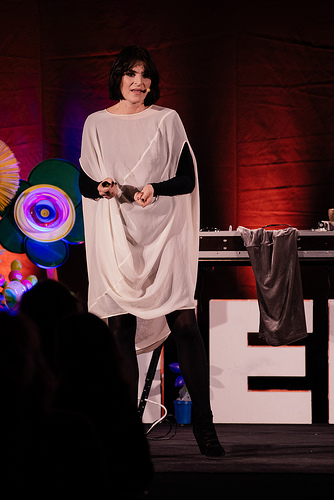I just read a book from a author who parallels a lot of my ideas. This made me wonder whether it meant the inner workings of our minds were similar, or that we simply drew our insights and ideas from the same sources? Gladwell has a brilliant piece objecting the notion that ideas and innovations are products of the genius of isolated minds, instead claiming them to be nascent potentials at the outskirts of the popular imagination.
As the information flow reaches delugian proportions, nobody can sift through it all. That why we rely on curators, who in turn rely on other curators, to bring us the cream of the crop. This isn’t just blogs and newspapers. Google is just that, and what its search algorithm considers relevant to you plays a big role: how often do you look at the second search page?
So while the internet promised to broaden our horizons indefinately, i think it might really have made the popular imagination more homogenous, streamlined the field of our collective references – that in turn would mean we are all bound to have rather similar ideas, and explains the relative congruence of trends and innovations.
This has upsides as well as downsides: the good thing is that it’s a fairly low involvement task to keep yourself updated on the bottom 90 percent of firstmovers and trendsetters. You just have to follow the right person, a easy task with the advent of blogs, rss readers and newsletters.
The downside is we don’t know what we don’t know: what gets through the widemasked net. And more important: that following is so easy that everybody else is doing it. The net will then never give you the highest 10 %, will never get you to the cutting edge, just flowing along the fuller. By the time news hit the frontrunners, its already old, and startling innovations are already mere conversation pieces.
If you want the future, you have to create it!



1 Comment
Add YoursSteven Johnson elaborates the critique of classic views on where ideas and innovations come from at TED:
http://blog.ted.com/2010/09/21/where-good-ideas-come-from-steven-johnson-on-ted-com/
Rather than see the idea as a fully formed and coherent unit instantly coming into being from nothingness, he argues for an understanding of the idea as the gradual formation of networks between already existing units of information.